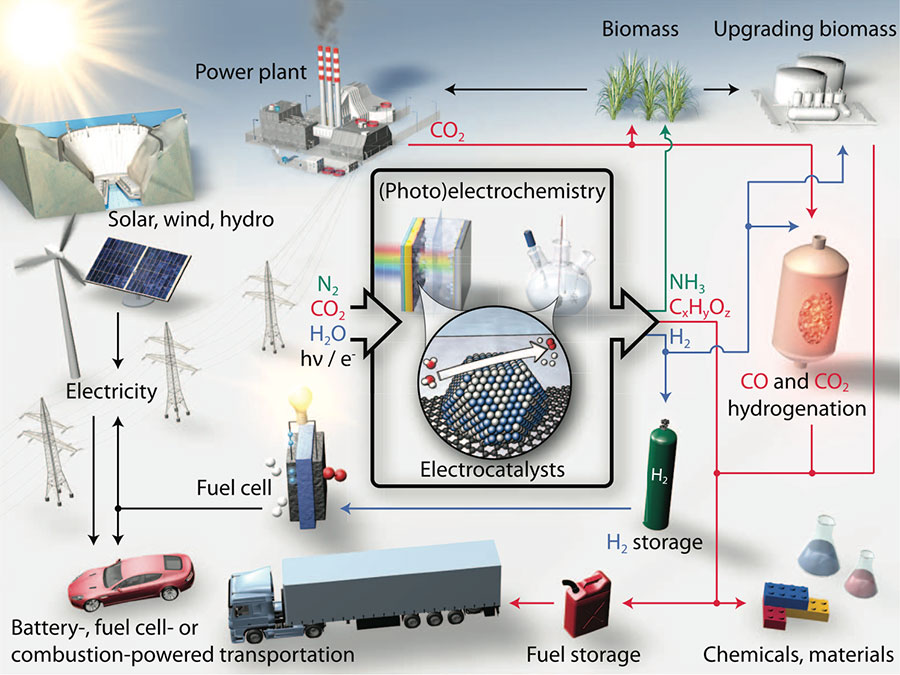
Heterogeneous catalysis is one of the cornerstones of the chemical industry, and more efficient catalysts are key to improvements in energy efficiency and the shift towards sustainable energy conversion and fuel production. It is very desirable to store energy in chemical bonds, which requires the transformation of energy to and from a chemical form, or from one chemical form into another. In many sustainable energy technologies, the lack of sufficiently efficient catalysts is a primary factor limiting their use. The same arguments hold for the development of a sustainable chemical industry where resources are used more efficiently and the energy input is from a sustainable source.
SUNCAT takes a combined experimental-theoretical approach towards the development of a fundamental understanding of processes of importance for sustainable energy conversion and fuel production for the goal of catalyst discovery. We have major efforts in thermal methane oxidation, CO2 reduction, and electrochemical hydrogen and oxygen redox reactions, CO2 reduction, and N2 reduction. To support these endeavours we are also developing new theoretical and experimental methods towards accelerated reaction network modeling, computational screening, catalyst synthesis with nano and atomic-scale control, and in-situ catalyst chacterization under realistic operating conditions.
